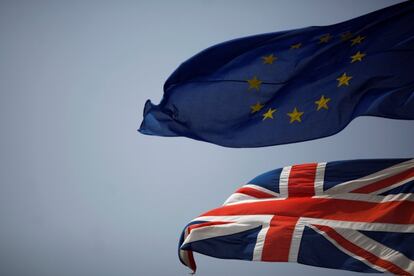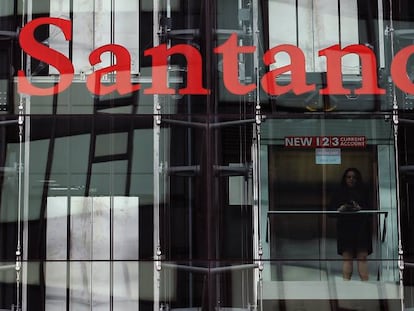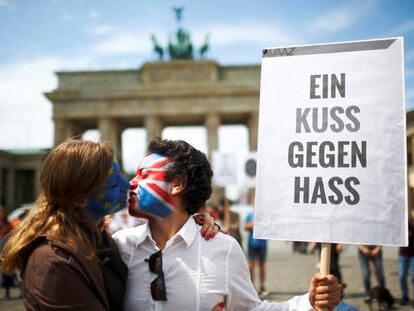Will English be the EU’s official language post-Brexit?
German and French are already gaining currency, despite English's traditional role as the language of business.

While Europe and the global financial markets were chewing over the UK’s decision to abandon the European Union on Friday, June 24, some French members seized the opportunity to take up arms against the widespread use of English as the bloc's lingua franca. If the United Kingdom is no longer a member of the club, they reasoned, why should its language predominate in Brussels?
Politicians from across the political divide such as Robert Ménard, mayor of the French Mediterranean town of Béziers, who has links to the far right National Front, or Jean-Luc Mélenchon, a European Parliamentarian and left-wing candidate for France’s Presidency, who is advocating Frexit, expressed the same opinion that fateful Friday: “English no longer has legitimacy in Brussels,” said the former; “English cannot be the third language that the European Parliament works in,” said the latter.
Former EU president Jacques Chirac once walked out of a meeting in Brussels when fellow Frenchman Ernest-Antoine Sallière – the then-leader of the European Employer’s Association (UNICE) – said, “I'm going to talk in English because it is the language of business.”
Other English-speaking countries, such as Ireland and Malta, chose to be represented by Gaelic and Maltese within the EU
In 2013, the European news site Euroactiv reported that the EU’s French elite was finally resigned to the fact that their language no longer enjoyed the influence it had until the 1990s, when it was used as the EU’s main working language. Meanwhile, the French newspaper Libération’s correspondent in Brussels commented after the referendum: “The tendency to use English is powerful and it will probably be difficult to change.”
The EU has 24 official languages, four less than the number of members (until the UK left), as some members states share a language. There are 1,750 linguists, 600 assistants, 600 translators and 3,000 freelance interpreters working in the European Commission (the executive body of the EU) alone, and whose job is to make sure all official documents are available in every language. But in meetings and seminars, as well as for urgent reports and press releases, English has long prevailed, followed by German and French.
Euro-English
As leading French daily Le Monde explained to its readers in an article on the consequences of Brexit, 38% of Europeans already speak English as a second language and it is unlikely it will stop being used in EU institutions. After all, as a report by the European Commission notes, it is the most spoken language in the European Union.
However, the English spoken in Brussels is not British English. It is a type of Euro-English influenced by the language spoken by Eurocrats who have introduced words from other languages. For example, “control” is used instead of “monitor” and “delay” instead of “deadline.”
The paradox is that although English is predominantly used in EU institutions, without the United Kingdom as a member it will cease to be the official language because the UK was the only country putting it forward as its language. Other English-speaking countries, such as Ireland and Malta, chose to be represented by Gaelic and Maltese, respectively, within the EU.
Former European Commissioner and current European Parliamentarian Danuta Hubner, who presides over the European Parliament’s Constitutional Committee, said on Monday: “English is the official language because the UK wanted it that way. If we don’t have the UK, we don't have English.”
According to Reuters, if other member states want to maintain English as the official language, they will have to come to an agreement or change the rules so that countries such as Ireland can have two official languages.
Sign up for our newsletter
EL PAÍS English Edition has launched a weekly newsletter. Sign up today to receive a selection of our best stories in your inbox every Saturday morning. For full details about how to subscribe, click here
But the Irish representative in the European Commission says English shouldn’t disappear automatically as the official language, as Hubner points out: “The Council of Ministers unanimously decides the rules that regulate the use of languages in European institutions. In other words, any change needs a unanimous vote from the Council, including Ireland.”
Nothing is automatic in Brussels, but since Friday things have been moving at a clip. Along with the message telling David Cameron to activate Article 50 of the Lisbon Treaty and start the two-year process of pulling the United Kingdom from the EU as soon as possible, according to the Wall Street Journal, the European Commission has already begun using more German and French.
English version by Heather Galloway.










































